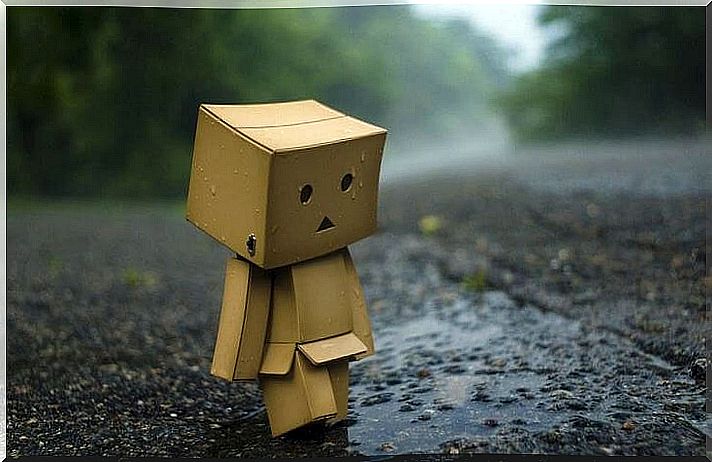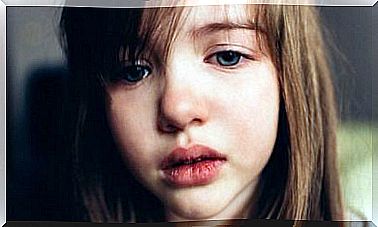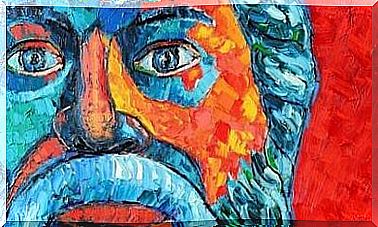Intolerance To Insecurity: Depression And Anxiety

Intolerance to insecurity is part of the essence of depression and anxiety. Its origins could very well be explained by the fact that we partially do not accept changes as positive or constructive things.
Intolerance of uncertainty plays a central role in our tendency to worry too much. The way we have to accept uncertainty or the unknown can make a dent in our emotional state. It can even promote the presence of emotional problems, such as anxiety and depression.
Sometimes we seem to be allergic to new things, changes and the complications that these bring. We are afraid to accept that things will not be the way they have been until now. This leads us to shut ourselves inside ourselves and not be aware of other possibilities that can lead us to improvements.
“We regard insecurity as the worst evil of them all, until reality shows us something else.”
–Jean Baptiste Alphonse Karr –

What is an intolerance to uncertainty and what is it based on?
By definition, an intolerance of uncertainty is a personal trait, consisting of negative beliefs about uncertainty and what it entails.
Recent evidence suggests that intolerance to uncertainty is oriented towards the future. Yet it is not the same as an intolerance of ambiguity, which is understood to affect the present moment.
Thus, we can emphasize that it is represented by two dimensions:
- Intolerance focused on the future is the idea that unforeseen events are very annoying. This type of reasoning is specifically considered as a specific factor for vulnerability of problems associated with anxiety and depression.
- Inhibitory intolerance: When the slightest doubt blocks you and makes you stop what you are doing. This specific factor is usually present in pathologies such as OCD.
Intolerance to uncertainty is a transdiagnostic concept that is more taken into consideration when evaluating emotional problems such as anxiety and depression. Understanding the value can help us tackle all these thoughts and feelings more effectively. All the thoughts and feelings that destroy us from within create a huge amount of discomfort.
“Uncertainty is so uncomfortable for people that instead of accepting it to cope with it, we prefer to invent a story for ourselves that we are told and that we also tell others about what will happen.”

The importance of making our thoughts flexible
In that sense , we must point out that the search for absolute security leads nowhere but to unhappiness. Not everything is cause and effect. In fact, nothing is absolute in our lives. We all tend to ask ourselves questions like the following. What would happen if all these pains were symptoms of an underlying cancer? What would happen if I did not find a good job?
Both the answers we give ourselves to these kinds of questions, as well as the frequency and type of events that make them appear, are crucial factors in considering this trend as a dangerous habit. People with depression, anxiety or problems of this kind tend to be more catastrophic or negative in nature.
We react strongly to insecurity because we are in love with security. We love to have everything planned. This often leads us to mistakenly overestimate the negative consequences of events we do not know much about. Or events that do not fit the expectation we consider ” normal “.

Our attempts to increase our security reduce intolerance to uncertainty and lead to an increase in our worries. On the contrary, increasing tolerance for uncertainty leads to a reduction in your worry. This is a synonym for being more flexible.
We can learn to tolerate uncertainty better
We can really learn to tolerate uncertainty better. At the end of the day, it’s a habit that can be worked on. First, you can examine the reaction you have when faced with unknown situations. Then you can try to participate in an explicit way in the possibility that this event can take place in many different ways. Ways that may not fit our expectations perfectly.
Because if not tolerating uncertainty makes us more rigid and unhappy, tolerating it can help us to be more flexible and therefore happier. Often, the key is to change and achieve complete emotional health, where we least expect it. And this find is a perfect example of that.

Sources of interest to specialists:
Sandín, B., Chorot, P. and Valiente, R. (2012). Transdiagnostics. New frontier in Clinical Psychology. Journal of Psychopathology and Clinical Psychology








